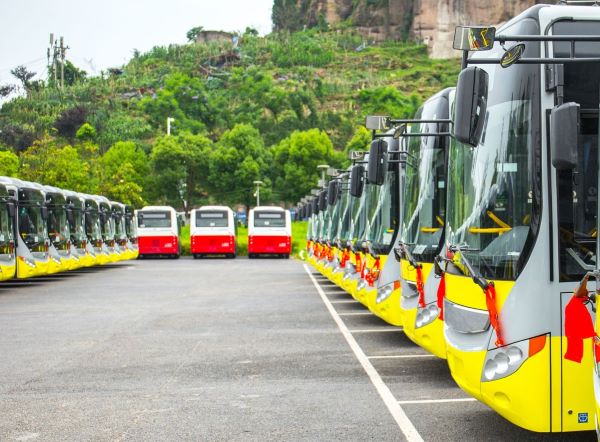
Team News Riveting
New Delhi, September 12
Minister of State for Housing and Urban Affairs Tokhan Sahu took stock of the situation of the PM-eBus Sewa Scheme for the deployment of 10,000 electric buses on PPP model in 169 cities.
Committed to ensuring that the project’s objectives are met effectively, the Minister directed to address any challenges, and monitor progress to achieve the desired outcomes for urban transport and sustainability.
Chhattisgarh has been granted Rs 30.19 crore, in the first tranche of the PM-eBus Sewa Scheme, which will fuel the promotion of e-mobility in four cities: Raipur, Durg-Bhilai, Bilaspur, and Korba.
For Chhattisgarh, all the infrastructure proposals that have been sanctioned for procurement of e-buses including the development of civil depot infrastructure and power infrastructure for charging. “This ambitious project represents a significant step forward in Chhattisgarh’s journey towards a more sustainable and efficient public transportation system”, said the Minister.
Under the scheme, 240 e-buses have been sanctioned for the four cities combined. The Minister highlighted that this initiative will not only enhance the quality of public transportation but also contribute to environmental sustainability goals in the cities.
He emphasised the broader impact of the initiative, stating, “This is a very good initiative which aligns with our Prime Minister’s vision to reach net zero carbon emissions by 2070. By reducing the carbon footprint associated with both personal and public transport, we are making a substantial contribution towards our national climate goals.”.
“PM-eBus Sewa Scheme” was launched on 16th August 2023 by Government of India with the aim to augment bus operations by deployment of 10,000 electric buses on PPP model in169 cities and to upgrade Infrastructure in 181 cities under Green Urban Mobility Initiatives.
The scheme’s main goals are to support the development and up-gradation of depot infrastructure as well as the construction of behind-the-meter power infrastructure, such as substations for e-buses. The scheme also envisages green initiatives such as bus priority, infrastructure, multimodal interchanges, charging infrastructure, and NCMC-based automated fare collection systems.



